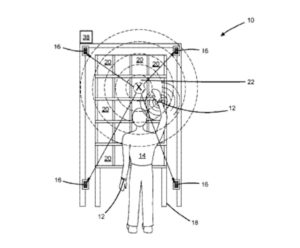One Man’s Brave New World
A well-regarded economist has written a new projection of a world of machine-driven alphas and lesser beings. The book is a smart and cruel projection of the world he sees coming. In fact, he thinks it is already here.“It might be called the age of the genius machines, and it will be the people who work with them that will rise. One day soon we will look back and see that we have produced two nations — a fantastically successful nation, working in the technologically dynamic sectors, and everyone else. Average is over.”
That is the last paragraph of a new book by Tyler Cowen, a well-regarded economist at George Mason University in Virginia. The title is, in fact, “Average Is Over,” describing what he believes is the inevitable gap between the wealthy and everybody else in the United States and the world.It might be called “Brave New World 3.0.” — a new projection of a world of machine-driven alphas and lesser beings, from betas to epsilons. The book is a smart and cruel projection of the world Cowen sees coming. In fact, he thinks it is already here.Scary stuff, I think. But it is consistent with my own thinking about the American way of work and where it might lead us all. I think “work” will become the next great American political issue: Who gets to work and who doesn’t? We talk and debate “unemployment” now, but the issue will go far beyond that, pushing down the life and comforts, even the reason for being of people without the skills or ambition to find a useful job capable of supporting a family. What will that work be like? What obligations and rights will employers and have employees have? Or what do the wealthy and accomplished alphas owe to everybody else and vice versa?“Workers,” he writes, “more and more will come to be classified in two categories. The key questions will be, Are you good at working with intelligent machines or not? Are your skills a complement to the skills of the computer, or is the computer doing better without you? Worst of all, are you competing against the computer? Are the computers helping people in China and India compete against you?”Cowen dutifully recounts the statistics that describe work and compensation in our society: high school and college graduates, including those with master’s degrees, are earning from 5 to 20 percent less in constant dollars than they did only 10 years ago. That is, if they can find work. Then he goes on to guess how much worse it will get.He writes of a “hyper-meritocracy,” in which those who can interface with the magical machines of our time — today’s iPhone is more powerful than the world’s largest computers were in 1985 — will be quickly and fabulously rich and useful. That would be, he estimates, 10 to 15 percent of the population. The other 85 percent will find some servant-like work making the high-earners feel better about themselves — masseurs, chefs, drivers, gardeners, whatever.© 2013 UNIVERSAL UCLICK
Your support matters…Independent journalism is under threat and overshadowed by heavily funded mainstream media.
You can help level the playing field. Become a member.
Your tax-deductible contribution keeps us digging beneath the headlines to give you thought-provoking, investigative reporting and analysis that unearths what's really happening- without compromise.
Give today to support our courageous, independent journalists.




You need to be a supporter to comment.
There are currently no responses to this article.
Be the first to respond.